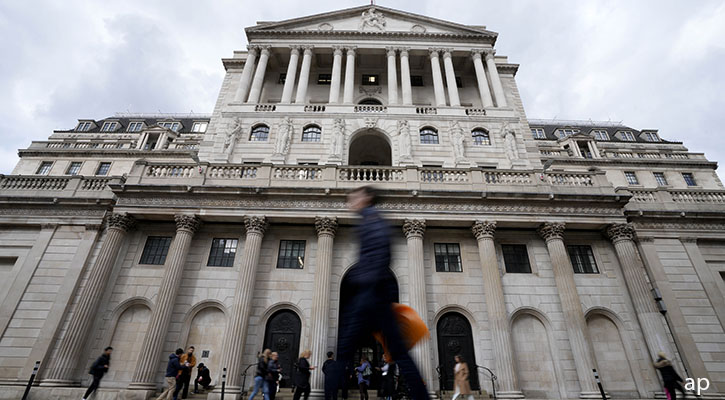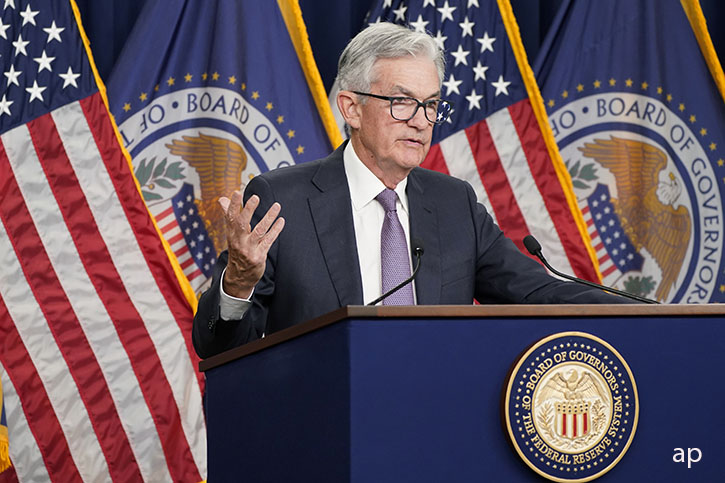
The Bank of England on Thursday raised UK interest rates by 25 basis points, as widely expected, and indicated that further tightening in monetary policy may be required.
The decision takes the key UK bank rate to 4.25% from 4% previously, and comes after a higher than expected inflation print on Wednesday.
The vote was split, with seven Monetary Policy Committee members voting for the hike and two voting for the bank rate to remain unchanged.
MPC members Swati Dhingra and Silvana Tenreyro voted against the rise.
Looking forward, the UK central bank said it will continue to closely monitor indications of persistent inflationary pressures, including the tightness of labour market conditions and the behaviour of wage growth and services inflation.
"If there were to be evidence of more persistent pressures, then further tightening in monetary policy would be required," the central bank said.
Thursday's move by the Bank of England follows interest rate decisions by the Swiss National Bank and Norges Bank on Thursday morning, the US Federal Reserve on Wednesday, and the European Central Bank last week.
The MPC said it will continue to adjust the bank rate "as necessary" to return the inflation rate in the UK back to its 2% target.
Figures from the Office for National Statistics on Wednesday showed that inflation in the UK came in hotter than expected in February.
The consumer price index rose by 10.4% in February from a year before, accelerating from a 10.1% annual rise in January. Market consensus had expected UK inflation to cool to 9.8% in February, according to FXStreet.
The print remained below the recent peak of 11.1% in October, which was the highest annual inflation rate since 1981 according to the ONS.
UK Banks Still Safe and Sound?
In addition to high inflation, the Bank of England on Thursday acknowledged that there has been "large and volatile moves in global financial markets in particular since the failure of Silicon Valley Bank and in the run-up to UBS's purchase of Credit Suisse".
On Wednesday, the Bank of England had insisted that the UK's banking system is robust, but admitted that any "lasting impact" on bank funding costs could dent the nation's financial stability.
This follows the failure of Silicon Valley Bank and Signature Bank in the US, after they could not raise the funds needed to pay savers rapidly withdrawing money from the banks.
In a letter to the Treasury Committee, BoE Governor Andrew Bailey stressed that the UK remains separate from the US's banking woes.
Bailey said: "The loss of confidence in, and material deposit outflows from, SVB UK was ultimately due to problems faced by its US parent.
"The UK banking system continues to be resilient, maintaining robust capital and strong liquidity positions."
Bailey pointed out that UK banks have less dependence on bond holdings than US banks and have a more diverse range of depositors, unlike SVB which was focused on lending to the technology and innovation sector and had a large portfolio of long-dated US Treasuries.
Sterling strengthened following the BoE decision. The pound was trading at $1.2303 shortly after the announcement, up from $1.2287 shortly prior.
The Fed raised US interest rates by a quarter of a percentage point, resisting the urge to pause hikes in the face of banking sector turmoil, while the SNB raised rates by a more aggressive 50 basis points. The ECB raised rates by the same amount last week. The Norwegian central bank opted for 25-point hike.










.jpg)

















